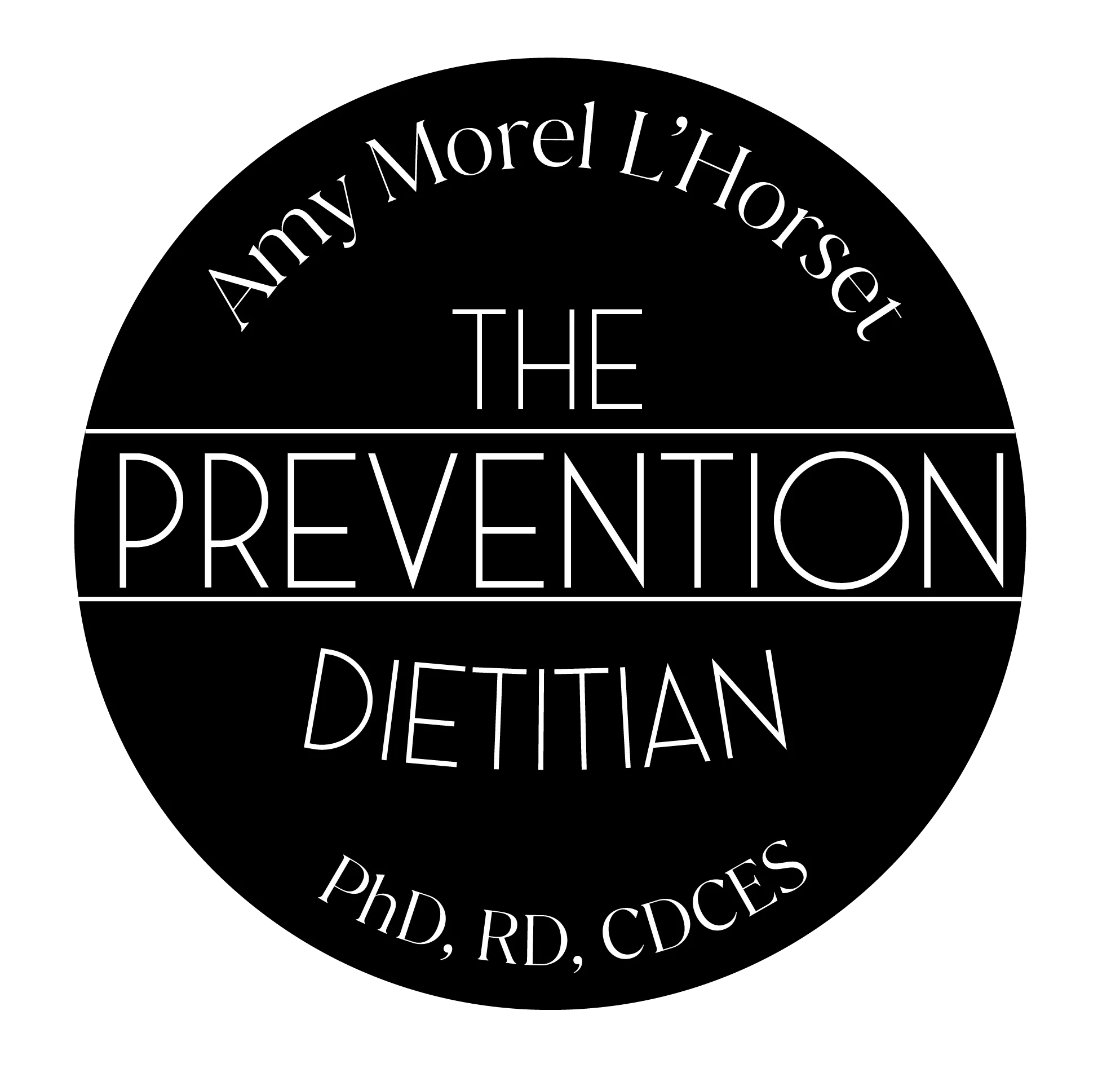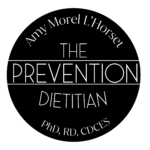Are you at risk for type 2 diabetes? When was the last time you had a hemoglobin A1C test? Have you ever compared your current hemoglobin A1C to previous years’ results?
This simple and inexpensive blood test identifies average blood sugar levels over the past 2-3 months. A hemoglobin A1C test can be used to:
- screen for high blood sugar, prediabetes and type 2 diabetes
- establish your baseline
- monitor your treatment plan
Why should YOU ask for a hemoglobin A1C test?
The most important lesson that I have learned about type 2 diabetes prevention over my past 20+ years as a dietitian and diabetes educator is that NO ONE IS COMING.
The numbers speak for themselves. CDC, 2020
More than 1 in 3 adults have prediabetes.
Less than 15% know that they have it.

Why? So many reasons. Limited access to healthcare, lack of preventive care services, clinical inertia, breakdowns in communication, inefficient systems.
When you schedule your annual physical exam, request ahead for a hemoglobin A1C test. Send a message through your clinic’s portal system or call the office directly.
Why? Because no one is coming for you. No one is coming to schedule your physical. No one is coming to discuss your type 2 diabetes risk status. No one is coming to order your test. No one is coming to track you down to go over your result.
YOU are the person that you have been waiting for to take charge of your health.
You want your hemoglobin A1C results to be ready in time for your appointment so you can have a real conversation with your healthcare provider.
Now that you have been tested, what should you do next?
For the majority of us who swim around in mainstream healthcare, we need to track down the result.
Did you get tested onsite at your provider’s office? Did you go to an offsite lab (Labcorp, Quest, etc)?
Can you access your lab results through a patient portal? Do you have to call? Does it come in the mail?
Whatever the case may be, go.hunt.it.down. It should take less than 2 weeks to get the result from the time you were tested. And while you are at it, hunt down any hemoglobin A1C results from previous years too.
Here is how to interpret your hemoglobin A1C:
Normal: < 5.7%
Prediabetes: 5.7% – 6.4%
Diabetes: > 6.4%
If you land in the prediabetes range, it means that you have a higher than normal blood sugar level, but not yet in the type 2 diabetes range. Prediabetes indicates that you are at increased risk for developing type 2 diabetes. CDC, 2020
Look for trends in your Hemoglobin A1C results.
Let’s say your current hemoglobin A1C is 5.6. When you track down your results from previous years, you discover it was 5.0 two years ago and 5.3 last year.
Reminder…
Normal: < 5.7%
Prediabetes: 5.7% – 6.4%
Diabetes: > 6.4%
Think of your hemoglobin A1C as data, feedback, a gauge…
If your hemoglobin A1C is in the normal range and/or trending down, good news!
If your hemoglobin A1C is not in the normal range and/or is trending up, take note and ask yourself what might be going on. Talk to your healthcare provider.
The problem is that most healthcare systems are not designed to automatically have this conversation with you. You need to ask!
Why might your hemoglobin A1C be trending up?
It can be due to one or more small changes over time (and often, but not always, coupled with a family history of type 2 diabetes or a history of gestational diabetes).
- Less sleep
- More sit time
- Increased stress
- Changes in diet
- Less physical activity
- Increase in body weight
- Medication side effect
Here is the thing. We don’t just wake up one day with type 2 diabetes. Physiologically, it is a very gradual process that begins 12+ years prior to diagnosis.
If I had a dollar for every client who has said to me, “I wish I would have known more about my blood sugar sooner”….
I’m on a mission to change the conversation about type 2 diabetes prevention! Please get your hemoglobin A1C tested. And please share this information with your family & friends.
If you want to learn how to lower your hemoglobin A1C and decrease your risk for type 2 diabetes through realistic nutrition and lifestyle strategies, consider working with a Registered Dietitian and Certified Diabetes Care and Education Specialist.





One Response